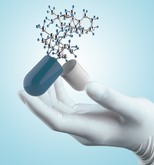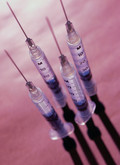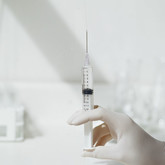Biosimilars
Chinese biosimilars go global: growth, partnerships, and challenges
Chinese biosimilars have gained global traction, with companies like Henlius and Bio-Thera securing international approvals. Despite challenges, China’s innovation and partnerships position it as a key biopharmaceutical player.
EC approves eight biosimilars, six more await final authorization
The European Commission (EC) granted marketing authorization for eight biosimilars: Biocon’s Yesintek,Celltrion’s Avtozma, Eydenzelt, Osenvelt and Stoboclo; Samsung Bioepis’ Obodence and Xbryk, and CuraTeQ Biologics’ Zefylti in February 2025.
EMA recommends approval for three biosimilars: Jubereq, Osvyrti, and Qoyvolma
On 27 March 2025, the European Medicines Agency’s (EMA) Committee for Medicinal Products for Human Use (CHMP) adopted positive opinions, recommending the granting of a marketing authorization for three biosimilar medicines: Accord’s Jubereq and Osvyrti (denosumab), and Celltrion’s Qoyvolma (ustekinumab).
How the WHO is expanding access to biosimilars
The World Health Organization (WHO) has highlighted its role in expanding global access to biosimilars in a February 2025 feature article, ‘Biosimilars: expanding access to essential biologic therapies’ [1].
FDA biosimilar approvals in March 2025: Bomyntra, Conexxence, and Omlyclo
In March 2025, the US Food and Drug Administration (FDA) approved three biosimilars: Omlyclo (omalizumab-igec), the first and only biosimilar designated as interchangeable with Xolair, as well as Bomyntra and Conexxence (denosumab-bnht), which reference Xgeva and Prolia (denosumab)
Stelara biosimilars enter US market with 85% discount in 2025
In February 2025, Teva Pharmaceuticals and Alvotech announced the availability of Selardsi (ustekinumab-aekn) in the US, followed by Sandoz’s Pyzchiva (ustekinumab-ttwe). These two products are biosimilars to the originator drug, Johnson & Johnson’s Stelara (ustekinumab).
Canada approves pegfilgrastim biosimilar Pexegra
On 25 February 2025, Health Canada granted marketing authorization to India-based Kashiv BioSciences for its pegfilgrastim biosimilar, Pexegra, which references Amgen’s Neulasta (pegfilgrastim).
IFPMA publishes position on pharmacy-mediated substitution for biosimilars
In January 2025, the International Federation of Pharmaceutical Manufacturers and Associations (IFPMA) published a position paper, ‘Pharmacy-mediated substitution for biosimilars’.
Optimizing costs with biosimilars: Brazil's case
The adoption of biosimilars, biological drugs similar to reference medications, has emerged as a pivotal strategy for reducing healthcare costs while maintaining efficacy and safety. A review by Azevedo, VF, et al.examines how Unimed Maringá, a private healthcare provider in Brazil, implemented a biosimilar management programme, achieving significant cost savings and broader patient access to essential therapies [1].
Insulin aspart and denosumab biosimilars approved in US
In February 2025, the US Food and Drug Administration (FDA) approved Sanofi-Aventis’ Merilog (insulin aspart-szjj), referencing NovoNordisk’s NovoLog (insulin aspart); and Samsung Bioepis’ Ospomyv and Xbryk (denosumab-dssb), referencing Amgen’s Prolia and Xgeva, respectively. Additionally, the FDA granted a provisional determination of interchangeability designation for both Ospomyv and Xbryk with its reference medicines.












